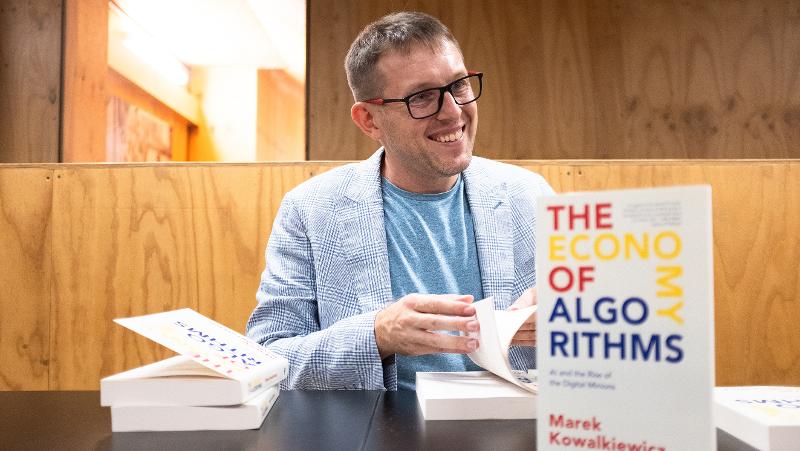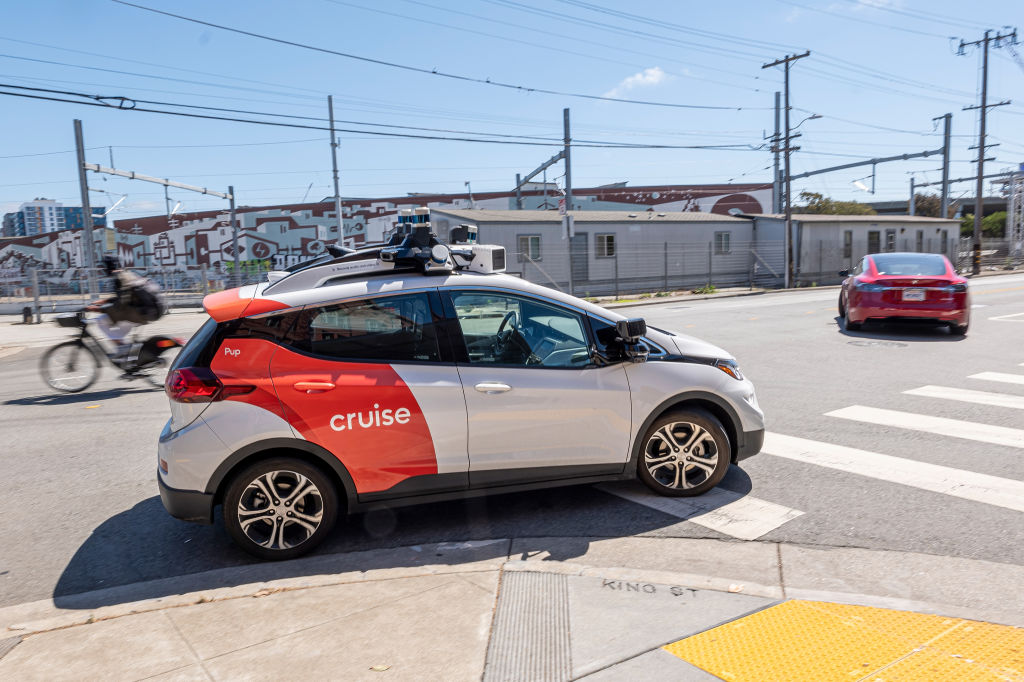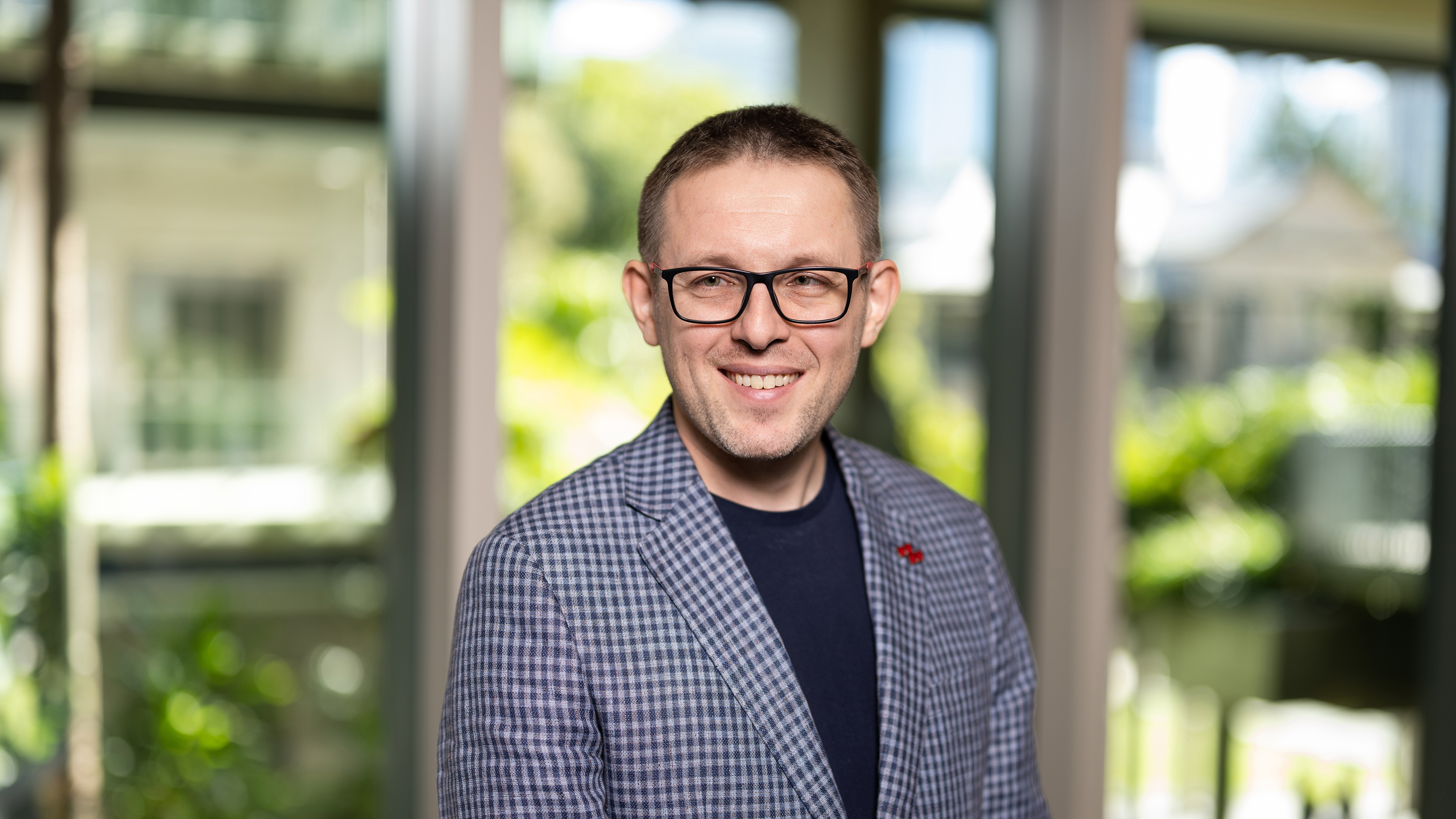
A QUT artificial intelligence expert has released his first book in a bid to help people better understand algorithms and make informed decisions about how much they let AI impact their lives.
Professor Marek Kowalkiewicz is Chair in Digital Economy in the QUT Business School, which means he’s tasked with keeping one step ahead of technology and helping organisations and consumers take advantage of new digital opportunities.
His new book, The Economy of Algorithms: AI and the Rise of the Digital Minions (Bristol University Press and Black Inc), is aimed at “curious people” and was launched in Brisbane this week at the Queensland AI Hub.
Professor Kowalkiewicz believes knowledge is power when it comes to AI and algorithms.
“I’m an optimist by nature and I get excited about technology – I’m not scared of AI,” Professor Kowalkiewicz said.
“But I think it’s important that people understand it.
“This is not a book written for AI experts – it’s a guide to help people who are curious about AI understand how it works, how it already impacts their daily lives, and how that will increase rapidly.
“Algorithms are essentially the recipes that tell a computer what to do. All AI is made up of algorithms – but not all algorithms have that extra ‘independent thinking’ ability that is AI.
“My book is a collection of stories that reveal how these algorithms are becoming part of our everyday life, and how they can help or hinder us. I use real scenarios taken from my own experiences and cases you might have read about in the news.”
Case studies featured in The Economy of Algorithms include:
- 19-year-old Jack Sweeney’s aeroplane tracking algorithm that lets him share the real-time location of private jets via Twitter/X and has drawn the ire of celebrities including Elon Musk and Taylor Swift
- The Office of Qualifications and Examinations Regulation algorithm in England that allocated lower-than-expected grades to final-year school students who hadn’t been able to sit exams due to the COVID-19 lockdowns, sparking mass protests
- The #HustleGPT challenge where people follow ChatGPT’s recommendations on how to turn $100 into as much money as possible, as fast as possible (legally!)
- The AlphaGo and AlphaGo Master algorithms that beat some of the world’s best Go players
- Driverless ‘robotaxis’ that were given a green light on August 10, 2023, to roam the streets of San Francisco 24/7, only to be shut down after one hit a pedestrian 53 days later.

Professor Kowalkiewicz said we’re already surrounded by algorithms, and they will keep growing.
“People talk about social media algorithms, but we also have algorithm chefs like the Thermomix, security cameras in our homes with algorithms that can alert us to trouble, and beautician algorithms that will choose the right shade of makeup for you,” he said.
“My vacuum cleaner has an algorithm that tells me when to replace its brushes, my car instructs me when to pump up the tires, and my lawnmower asks for help when it gets stuck – all these messages display on my phone via their apps.
“Even my watch is telling me what run I should do in the morning based on my sleep the night before. But, we still need to use our judgement … if I did every run my watch thinks I should do I’d probably be dead from exhaustion.
“I firmly believe that one day soon I won’t have to go shopping for coffee beans any more … my coffee machine will know when we are running low and order them for me and they’ll be delivered by a drone to my door. We probably won’t do any grocery shopping at all because we’ll have a fridge that uses an algorithm to anticipate what we want – based on our tastes and the season – and will plan our meals for the week and order the groceries.
“I call these autonomous algorithms that are capable of doing jobs for us ‘digital minions’ because they help us with the repetitive and dull jobs we often avoid doing.”

Professor Kowalkiewicz is a former Silicon Valley executive who led innovation teams for one of the largest enterprise software vendors in the world.
In 2023, Thinkers360 included him in its list of the Top 100 Global Thought Leaders in Artificial Intelligence.
He said the world had already transitioned to a digital economy, and was now moving into an economy of algorithms.
“It’s up to us to learn how to best navigate this new economy and use it to our advantage and not be disadvantaged,” he said.
Professor Kowalkiewicz said it was important to develop people’s ‘AI literacy’ to cope with this new economy.
“From school students to senior citizens, we need to better understand how algorithms work so that we don’t take everything on face value – and so that we don’t shy away from utilising AI to make our lives better,” he said.
“I hope every teacher will read this book to better understand the world that the kids they are teaching will live in, and how they can help prepare them for it.”
The Economy of Algorithms: AI and the Rise of the Digital Minions is published by Black Inc in Australasia and Bristol University Press in the UK and the rest of the world. It is available in paperback or ebook format from book shops and online retailers including Booktopia and Amazon.
Main image at top of page: Professor Marek Kowalkiewicz, pictured at his Brisbane book launch on March 5.
QUT Media contacts:
- Mechelle McMahon, media@qut.edu.au
- After hours, 0407 585 901 or media@qut.edu.au


